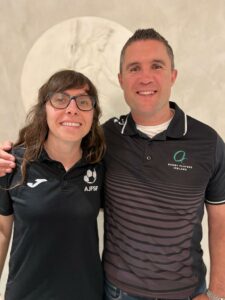
Oct 27, 2023
The educational videos in English, Danish, French, Italian and Spanish were designed as a part of the Erasmus+ project PROtect Integrity Online co-funded by the European Union. The videos incorporate the key messages from the previously revised Code of Conduct for Athletes and aim to educate the athletes as well as the broader sporting community on fighting against match fixing and corruption in sport.
The educational videos were created for eight player associations participating in the project and EU Athletes:
AJFS (men’s futsal, Spain):
AJFSF (women’s futsal, Spain):
RPI (Rugby, Ireland):
HSF (Handball, Denmark):
GIBA (Basketball, Italy):
AIP (Volleyball, Italy):
SNB (Basketball, France):
AJPH (Handball, France):



Aug 30, 2023
Brussels, 30.08.2023
In the light of the unacceptable behaviour of Luis Rubiales, the President of RFEF (Spanish Football Federation), during the FIFA Women’s World Cup final, as well as the subsequent events, EU Athletes strongly condemns such act as inappropriate, damaging to the values of sport and contrary to the rights and dignity of athletes.
EU Athletes is committed to the principles of good governance and the ongoing fight for gender equity in sport and beyond. We express our support to Jennifer Hermoso and other Spanish national team players and are glad to see the solidarity from the players and other sport stakeholders.
We believe that in order to eradicate such behaviours from sport and wider society it is essential to make sure that they do not go unpunished. Not only Mr Rubiales, but all sport officials responsible for or involved in attempts to disregard the incident, silence, coerce or blame the player should face appropriate consequences.
Contact: Paulina Tomczyk, General Secretary paulinatomczyk@euathletes.org
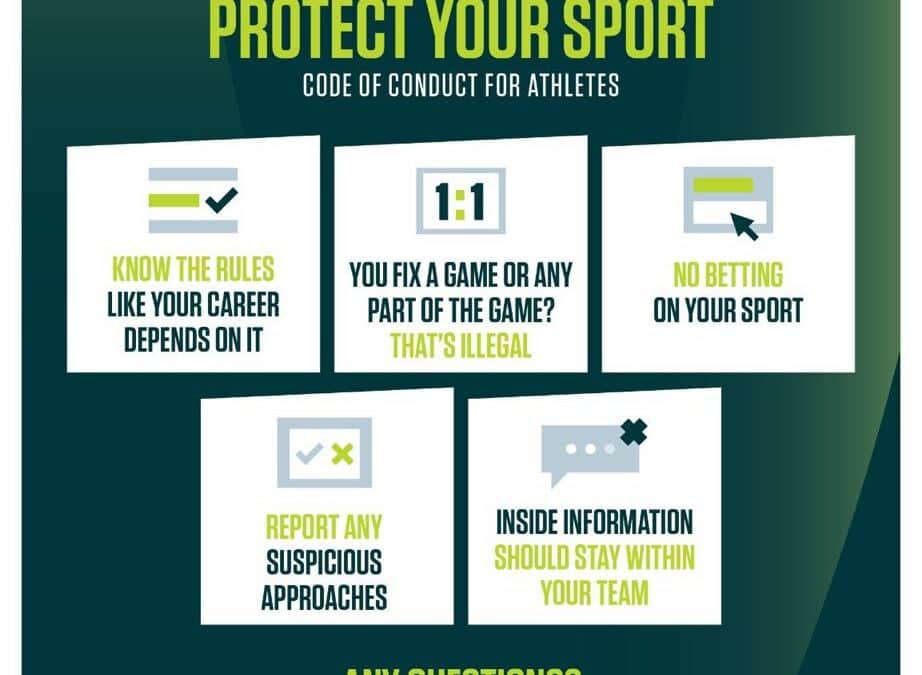
Jul 6, 2023
As a part of the Erasmus+ PROtect Integrity Online project, the new version of the Code of Conduct for Athletes was developed in cooperation with the project partners.
Two versions of the Code of Conduct were produced: a leaflet and a poster. The poster focuses on 5 key messages to educate players on fighting against match fixing and corruption in sport, while the leaflet includes short description in addition to the messages. The text has been reviewed to keep the messages clear, grab attention, and call to action. These materials will support the implementation of integrity education organised by the player associations involved in the project and will be used both online and during in-person team visits.
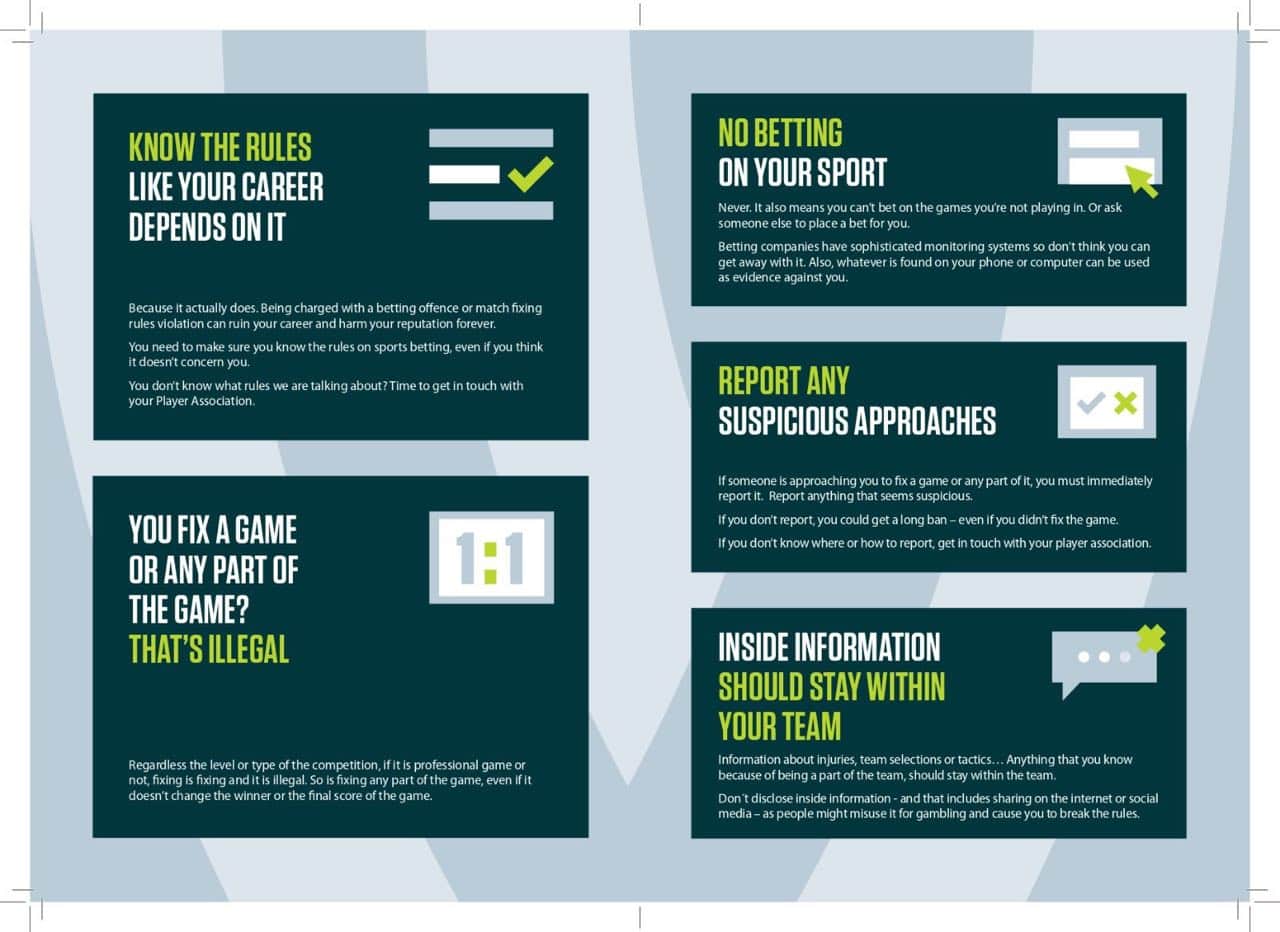
For instance, Rugby Players Ireland (RPI) has already started implementing anti-manipulation education to players with the help of the Code of Conduct.
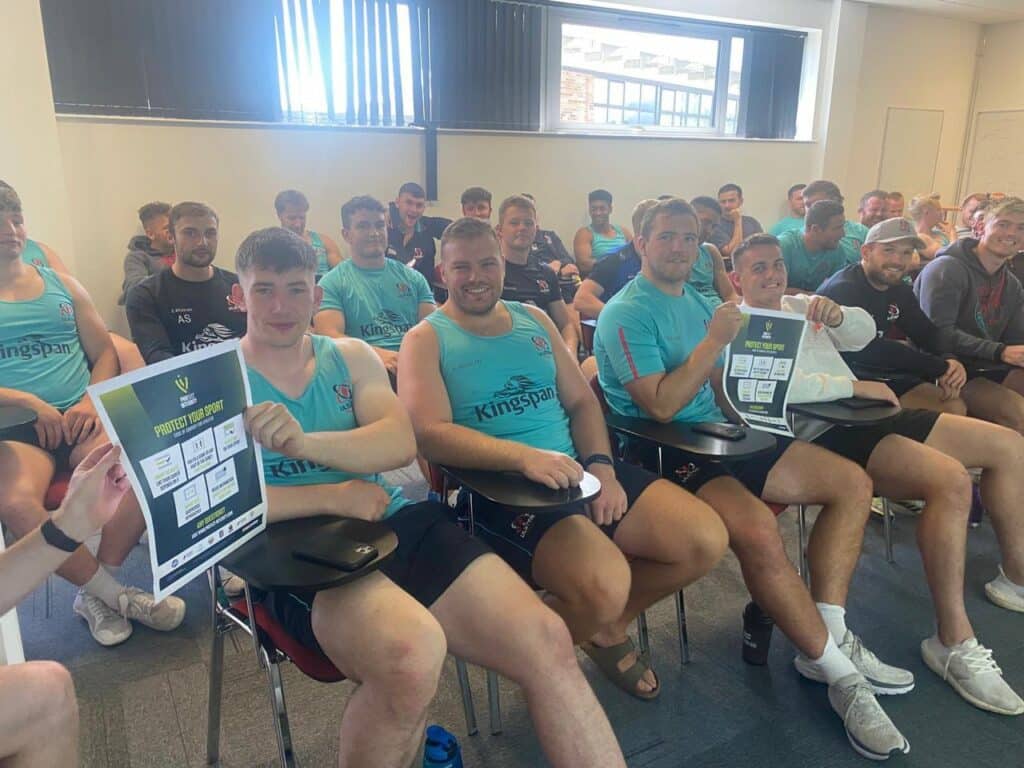
The Code of Conduct is available in five languages and can be downloaded here.
The project researcher Pim Verschuuren from the University of Rennes 2 completed the Report on Mapping and Recommendations for Developing Education Materials. The report includes a review of existing education practices, literature review on integrity education, analysis on the anti-doping educational framework, and recommendations for the design, implementation and evaluation of education strategies.
The findings of the report have been considered during the update of the Code of Conduct and will continue to guide the development of education materials and the implementation of the education in the following months.
The Report on Mapping and Recommendations for Developing Education Materials is available here.

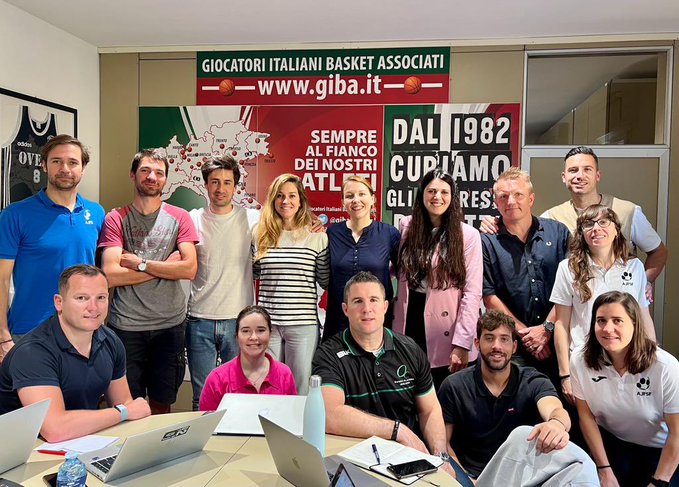
Jun 7, 2023
On the 7th of June 2023, all 10 partners of PROtect Integrity Online Erasmus Plus project gathered at Italian Basketball Players Association (GIBA) office in Bologna, Italy. The purpose of the meeting was to prepare to the key phase of the project: implementation of integrity education to professional athletes from 5 countries and 5 major team sports, covering more than 3 000 athletes every year.
The project focused on development and finalisation of deliverables which will be essential to the delivery of education: the report which will offer revue of the status quo when it comes to integrity education and provide recommendations for developing education programmes, Code of Conduct for Athletes in 5 different language versions, as well as supporting materials such as posters, leaflets and educational videos.
8 player associations will start the team visits this summer, making an important contribution to fighting against the match fixing and protecting the integrity of sport.

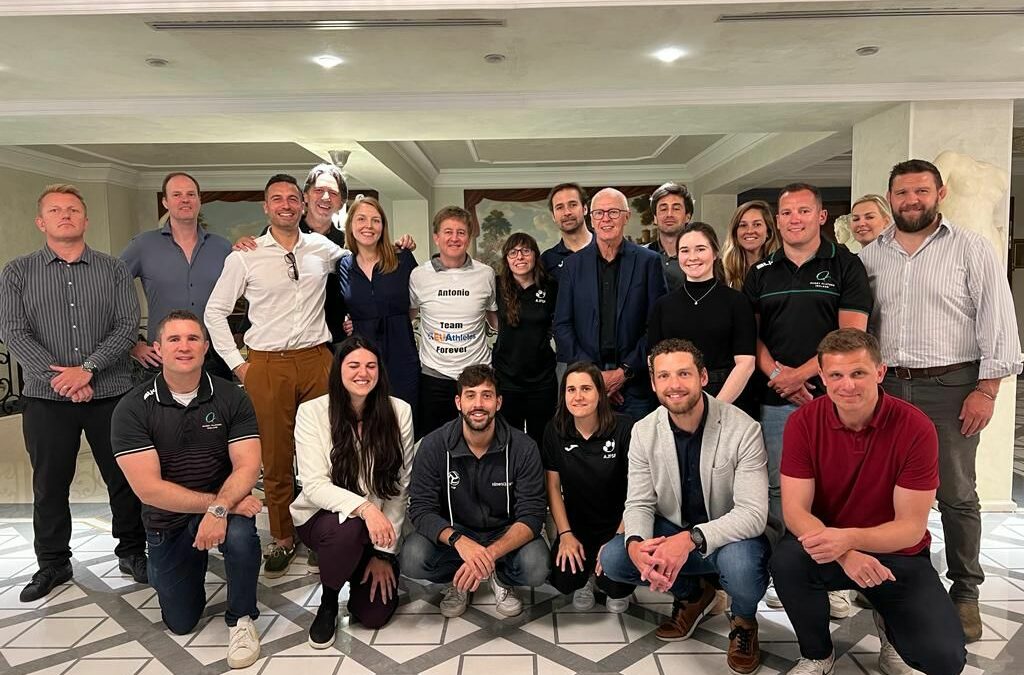
Jun 6, 2023
On Tuesday the 6th of June 2023, EU Athletes members gathered for the EU Athletes General Assembly 2023 in Bologna, Italy. Over 20 representatives of athlete and player associations from different sports and countries across Europe participated in the General Assembly this year.
The meeting focused on the discussions about EU Athletes priorities and activities, including policy work, EU funded projects and the ISU case. The participants also engaged in workshops to discuss the key issues and build the future work of EU Athletes to best support the athlete associations and the European athletes.
In 2023, four candidates stood for the elections for the Board positions. Simon Keogh (RPI) and Marc Leroy (United Athletes) were re-elected to the Board of EU Athletes for terms of three and two years respectively. Julie Campassens (SNB) and Line Ottersen Dahlberg (NISO) were elected to the Board for a three years term each.
The General Assembly was followed by the Board meeting, during which Natalia Orive (AJFSF) was elected as the President of EU Athletes and Simon Keogh (RPI) as the Vice-President.
The members thanked Brendon Batson, who has decided to step down from his position as President this year, for his leadership and dedication over the past years.
